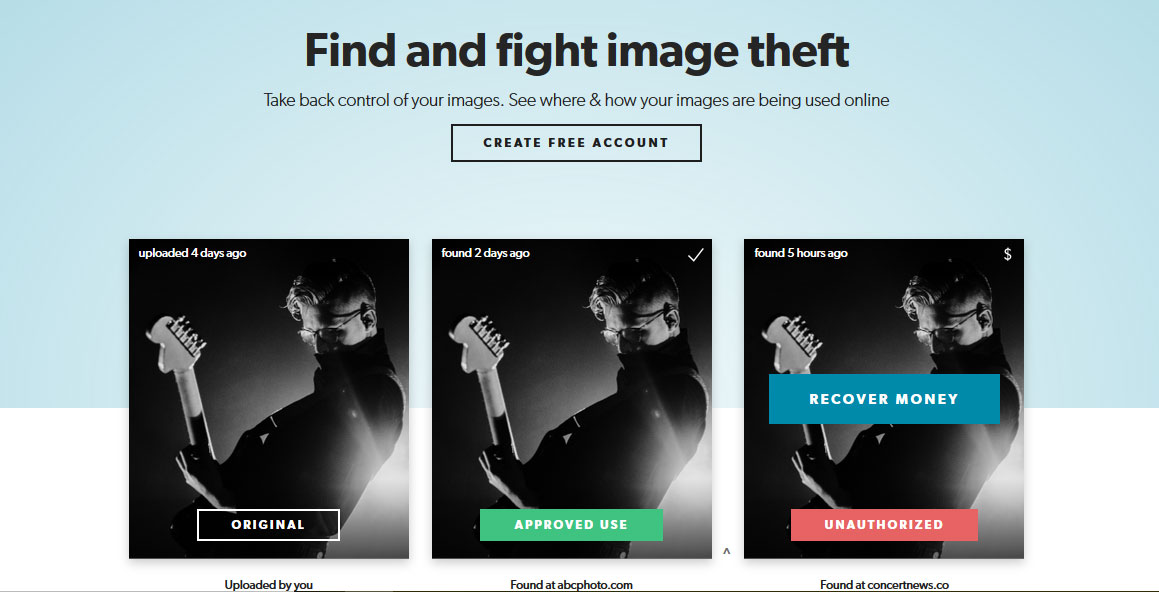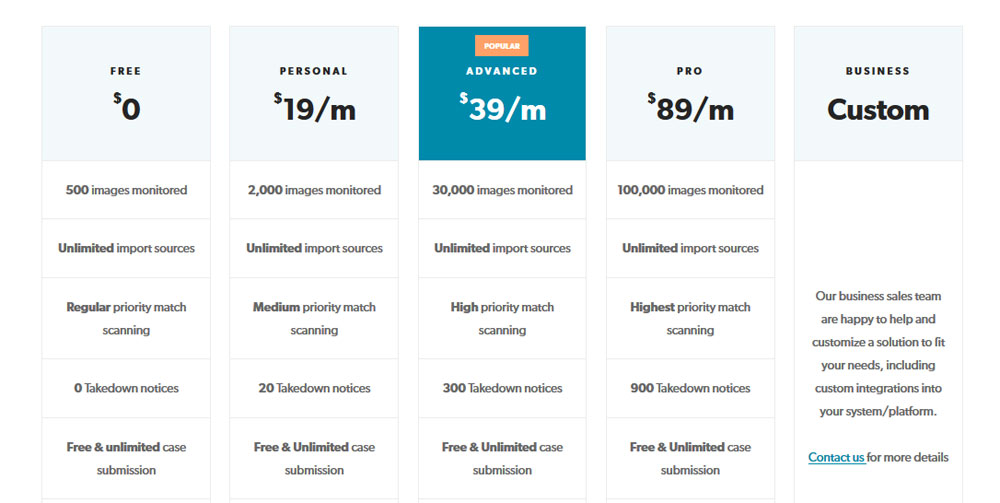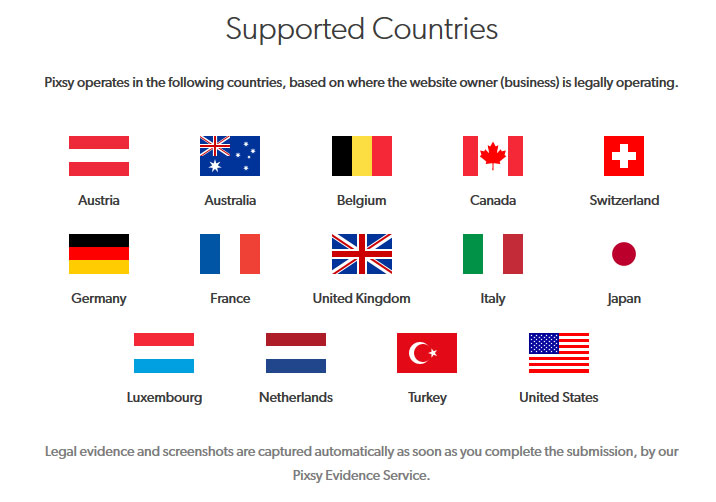Pixsy, an image copyright protection platform, now appears to have a presence in Australia with an office and phone number. The business is part of a new industry of ‘copyright agents’, which aim to profit off photographers’ intellectual property by chasing down online infringement.

Pixsy finds alleged online copyright infringement and ‘takes action’ on behalf of photographers, pocketing 50 percent of recovered fees.
Pixsy competes with other established companies like CopyTrack and ImageRights, which use the same ‘track and pursue’ business model. They offer a solution to rampant online copyright infringement, which some photographers fine bothersome and time-consuming.
Since launching in 2014, Pixsy claims to have serviced 40,000 clients with over 70,000 cases managed around the world.
Pixsy is building inroads into the broader photo industry. Earlier this year it announced a strategic partnership with Flickr, which is undergoing a mid-life crisis as new owners attempt to make it cool again.
Pixsy also partners with pro photography associations, offering discounts to members of the American Society of Media Photographers and The Guild of Photographers in the UK.
About the Australian office in Sydney: It’s unstaffed, and the Sydney phone number is redirected to an offshore call centre.
‘We are a US incorporated company, and our Sydney postal address is in place for us to receive correspondence for our Australian cases,’ Rebecca Burgess, Pixsy advocacy and engagement manager, informed Inside Imaging. ‘Our core team is based in Berlin, Germany, in order to cover multiple time zones, as we serve North American and European jurisdictions alongside Australia and Asia through our case resolution services.’
On one hand, it’s sort-of misleading to present the impression that there’s an Australian Pixsy team. We thought there was! But on the other, Pixsy’s investment in local infrastructure shows a bigger commitment than that of the competition.
Rebecca Burgess said thousands of Australian photographers have used Pixsy.
One of them is Rohan Anderson, an Australian live music photographer, who told Inside Imaging he’s ‘overall disappointed’.
This is due to regular e-mail alerts from Pixsy of new infringements, which rarely lead to compensation. Pixsy turns down the case as it’s often not ‘worth their time’, ‘outside a country where we operate’, or ‘they didn’t receive an e-mail response from the infringer’.
‘In the cases they’ve tried to go further, the response ended up being “our Australian legal team isn’t willing to take this further”,’ Rohan said.
In Australia Pixsy uses LegalVision, a commercial law firm specialising in small-to-medium enterprises.
Anderson uses a free plan, which doesn’t provide access to DMCA-style image takedown notices.

While he isn’t complaining about a free service, he notes that over many years Pixsy has only generated $50 for him from one case of many dozens.
Commercial photographer and copyright expert, Chris Shain, told Inside Imaging that he’s not used Pixsy but is familiar with the business model.
‘I’d be encouraging any and all photographers to investigate Pixsy and the like, but I’d also strongly point out that all these legal and infringement issues are very difficult to pursue if photographers are not diligent in making sure all metadata and any attribution is intact before any imagery is published in any way,’ he told Inside Imaging. ‘And be very clear about usage terms with client-commissioned work.’
In other words, don’t rely entirely on a third-party copyright management system to do everything, especially if you’ve been careless with your image management.
So how does it work?
Pixsy’s most attractive account is free.
Photographers import images and use a reverse search tool, like TinEye, to find where they are published. Pixsy then monitors the internet to detect further instances where the image may have been misused.
‘We offer AI-powered scanning and image monitoring services, with tailored workflows to show when images are used by companies or organisations in different jurisdictions,’ Burgess said. ‘Our clients take action on unauthorised uses of their work by sending automated takedown notices or through our comprehensive case management services.’
Pixsy acts as a third-party facilitator between photographers and legal firms in 14 countries.

As mentioned earlier, pursuing a case is free but Pixsy takes a 50 percent cut of acquired fees and holds exclusive management.
‘You agree that once you make a case submission to Pixsy, unless Pixsy consents otherwise, Pixsy shall act as the exclusive agent for the identified infringement during the period of time until the case is finally resolved or as long as the photograph is on Pixsy’s image monitoring platform, whatever happens later,’ the Terms of Use says.
The first call to action is demanding payment through aggressive e-mails. Pixsy is not a legal firm, but attempts to shake out a payment by threatening expensive legal action.
Intimidation tactics don’t always pay off. There are online forum threads about how Pixsy has attempted to ‘extort’ hundreds of dollars from an individual hosting a non-commercial website. Some said they negotiated the fee down, others paid up, but many ignored it and eventually the problem went away. (See link at bottom of story for a sample Pixsy legal letter.)
It’s possible that, similar to Rohan Anderson’s experience, Pixsy’s legal partners turn down minor acts of image misuse, so Pixsy drops the matter. Hey, at least the image (probably)is taken down!
But lawyers can step in – and on a no win, no fee basis.
‘Pixsy (and its legal partners) handle upfront costs through our case resolution service and manage the process throughout. The majority of our legal cases are settled in pre-court negotiations,’ Burgess said. ‘In rare instances where these negotiations are unsuccessful and a lawsuit is filed for a court to make a judgment on the infringement, Pixsy prepares all case documentation, evidence, research, and liaises (as the agent) with the photographer and legal partner to progress the litigation.’
Australian travel blogger, Oceana Setaysha, wrote in 2016 that Pixsy landed her $1450 after a Canadian legal team settled a case for CAD$4500. It involved a ‘well-known company’ using her image to promote a product, and Setaysha said she was required to provide evidence, sign forms, and post them with the process taking a long time and some effort on her end.
A recent ongoing high profile Pixsy case is Russell Brammer (photographer) V Violent Hues Productions in the US. Brammer’s photo was published without consent to promote the Northern Virginia Film Festival, with legal proceedings launched in 2017.
It appeared to be a clear cut case of online copyright infringement, but Violent Hues successfully argued it was Fair Use.
Lawyer Ed Greenberg, and commercial photographer Jack Reznicki, wrote a blogpost on The Copyright Zone explaining a crucial reason why Brammer lost: his lawyer, hired by Pixsy, presented a weak case. They speculated an appeal would overturn the motion, as the judge hinted that he could only rule on the case presented by both parties.
The motion was overturned through an appeal earlier this year, with Pixsy fighting the case with the same, perhaps reinvigorated, lawyer.
‘Pixsy upfronts (sic) costs through the legal process, and only receives a fee on cases that are successfully resolved,’ Burgess said. ‘When a case is successful, the attorney fee comes out of both Pixsy and the photographer’s pocket. Associated filing fees for legal cases vary depending on the jurisdiction and type of case, however here’s some general information:
‘If a case is settled in pre-court negotiations through our US legal resolution program, our legal partner’s fees are covered as part of Pixsy’s 50 percent of the success fee. Pixsy’s success fee of the settlement once the photographer has received 50 percent covers costs in preparing and progressing the case.
‘When a lawsuit is filed on a case through our US legal resolution program, the photographer receives 50 percent of the final settlement amount once attorney and court filing fees are deducted, and Pixsy receives the remaining amount.’
Given the service is free, Pixsy may be worth it for photographers unwilling to fight copyright infringement but still want protection. Minor instances of copyright infringement could produce some extra income. And Pixsy probably has more heft in getting an image taken down than an individual photographer.
But if a ‘proper’ business is caught infringing, a photographer should be aware that Pixsy is in control.
Russell Brammer’s court case has now lasted four years and almost ended with a big loss in 2018, only to be overturned. Perhaps if he fought the case with his own lawyer, things would have ended differently – and sooner.
Either way, let’s hope that 50 percent cut is worth the wait!
We were going to re-publish an example of one of the pretty aggressive Pixsy Letters of Demand but weren’t really sure it would qualify as Fair Use. (The irony!) So here’s a link instead:
https://www.reddit.com/r/podcasts/comments/985lbf/psa_dont_panic_if_you_hear_from_pixsy/





Be First to Comment